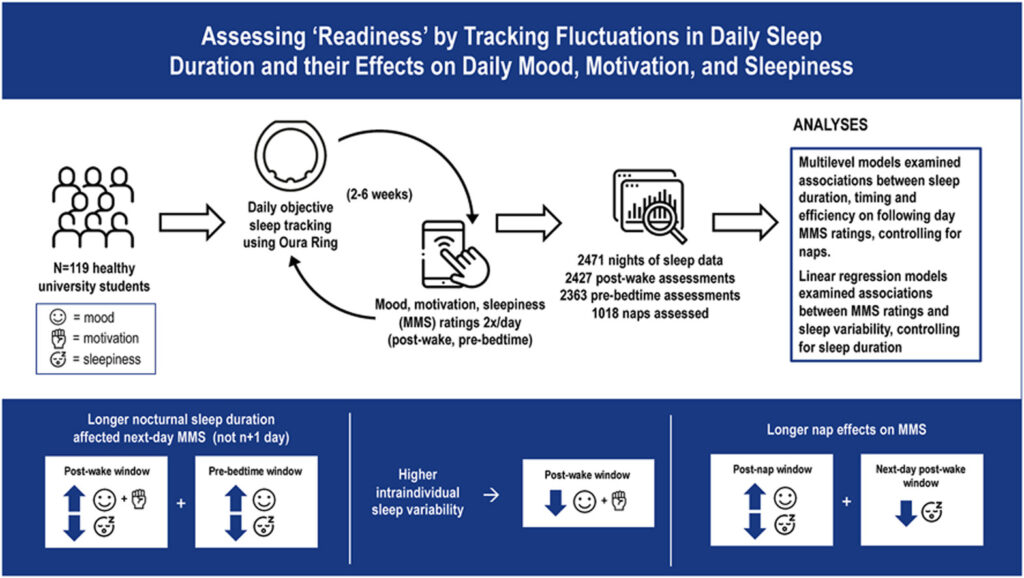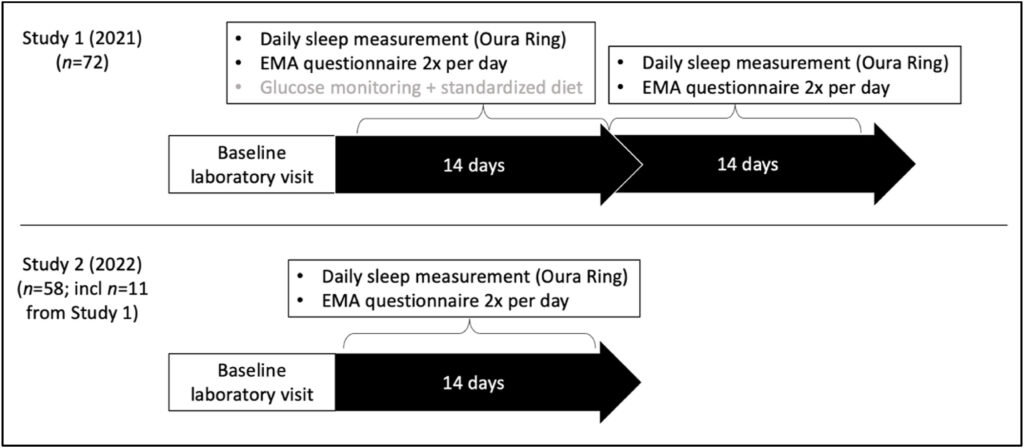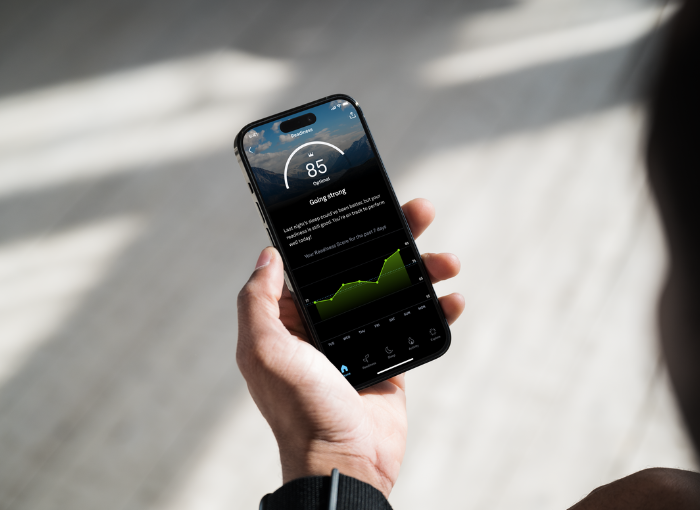How does your sleep influence your mood, motivation, and sleepiness levels the next day? That’s the question Michael Chee, MBBS, FRCP(Edin), director at the National University of Singapore’s Centre for Sleep and Cognition, and colleagues sought to answer in a recently published study in Sleep Medicine.
In the Oura App, Oura members receive a daily Readiness Score, meant to serve as a snapshot of how “ready” you are for the day ahead. There are nine Readiness contributors based on personal averages, and include biometrics such as your resting heart rate, HRV balance, body temperature, previous day activity, and sleep balance.
Up to now, there has been limited independent research into how this one measure correlates with an individual’s self-reported daily experiences of mental readiness.
In the study, Chee and his colleagues wanted to understand how sleep quantity, timing, and efficiency impact next-day readiness.
Using Oura Rings, researchers were able to relate wearable data with personal assessments to gauge how much of an impact sleep has when it comes to markers of preparedness to take on the day’s challenges.
Read the full study here.
Key Findings
- When participants slept longer than their average, they experienced a better mood and were less sleepy the next day. They also had enhanced motivation in the morning. These effects were relevant for that day but not the next.
- In contrast a participant’s average sleep duration did not predict between person differences in mood, motivation and sleepiness speaking to the value of personalized, daily sleep tracking.
- Many participants (76.4% in Study 1, and 53.2% in Study 2) napped for more than half an hour at least once per week. Napping had favorable effects on same-day mood, and it predicted lower sleepiness scores the following day, even after controlling for sleep duration.
- Having sleep variability, was associated with a lower mood and motivation post-waking.
Study Design
The study enrolled 119 healthy university students aged 21 to 30, who were recruited in two separate, near-identical studies. Study 1 lasted for four weeks, while Study 2 lasted for two. 11 participants took part in both studies, totaling six weeks of data.
Each participant was given an Oura Ring to wear and was required to provide data from a minimum of five days each week, including at least one weekend day. Additionally, twice daily, participants were required to provide daily reports of their mood, motivation, and sleepiness.

Post-wake and before bedtime, participants completed “momentary assessments.” The assessment included questions such as “How are you feeling right now?“ and “How motivated are you feeling right now?” Participants responded on a sliding scale, from 0 to 100.
The data was statistically analyzed, with a key aim to understand the effects of total sleep time, sleep midpoint, and sleep efficiency on mood, sleepiness, and motivation the next day.

The participants’ Readiness Scores were blocked from the Oura App to avoid influencing their self-reported state assessments.
Considerations
The participants used for the study were university students who had an average bedtime of 1:42am and slept, on average, for 6 hours, so these findings are particularly relevant to persons who frequently do not obtain sufficient sleep.
Looking Forward
One important learning from the study: University students and persons in demanding jobs that curtail sleep can benefit from creating more consistent sleeping schedules and leverage naps for a boost in their readiness and mood.
As articulated by Alyssa Ng, the first author of the study, “This work lends credibility to provision of a daily ‘readiness’ score based on measurements of previous night’s nocturnal sleep duration.”
Having access to personalized sleep information can be a helpful to predict how your day might look in terms of mood, motivation, and sleepiness.
Read the full study here.
RELATED: Study Uses Oura to Track 50 Million Nights of Sleep to Analyze Global Sleeping Patterns




